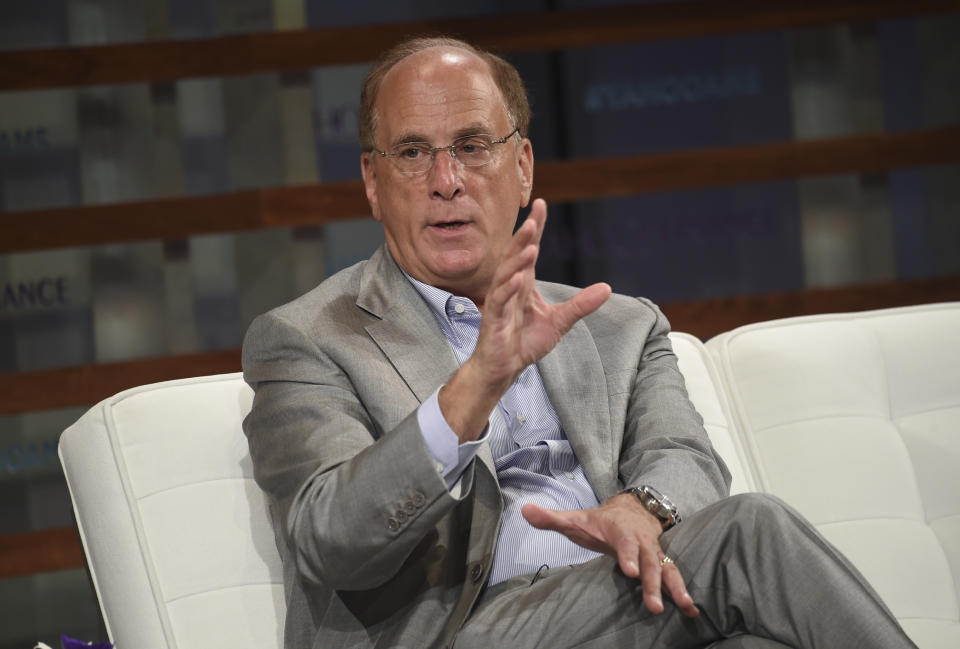Why BlackRock decided now is the time to act on climate change
In Larry Fink’s annual letter to CEOs, the BlackRock chief executive and chairman announced that “climate risk is investment risk,” and vowed to exit investments with “high sustainability-related risk,” offer more investment products free from fossil fuel investing, and to work with companies in the company’s portfolios on sustainability issues.
At the World Economic Forum in Davos, Switzerland, Brian Deese, BlackRock’s global head of sustainable investing, spoke of a paradigm shift.
“We are on the verge of a fundamental reshaping of finance,” Deese said in an interview with Yahoo Finance. “We are going to see a massive reallocation of capital, and participants aren’t fully grasping the magnitude of these changes.”
BlackRock (BLK), the biggest money manager with almost $7 trillion in assets under management, has been pressured for years to use its mighty ownership stakes in companies to affect environmental change, leading some to wonder: why is it taking this step now?
“Our research and the work we’ve done has shown climate risk is investment risk,” Deese said. “It’s about measuring that risk.”

As some have speculated (Bloomberg’s Matt Levine, for example), the push likely came from BlackRock’s clients, who demanded better options and action from the company.
Deese pointed out that two major factors came into play. First, the scientific aspect that’s measured by physical risk. “Whether wildfires in Australia or in the west of California, or the incidents of flooding around the world affecting farmers or crop yields, these physical risks are becoming increasingly salient,” said Deese.
The other factor is a little deeper than just “our clients want it,” Deese said.
BlackRock sees society as very unhappy with the ways governments and companies are responding to climate change risk, particularly students. Deese said society has other ideas and expectations about how companies and governments ought to deal with climate change. BlackRock sees these trends as the future and wants to make sure it’s on the “front end.”
“Ultimately these expectations will be manifested in capital allocations in the future,” said Deese.
-
Ethan Wolff-Mann is a writer at Yahoo Finance focusing on consumer issues, personal finance, retail, airlines, and more. Follow him on Twitter @ewolffmann.
The first thing to do after you're involved in a hack, according to experts
Companies are secretly scoring you, but good luck getting your data
'Snake oil salesmen': Two neurologists respond to the CBD craze
Large-scale credit card hackers back for the holiday season, ex-FBI investigator says
Read the latest financial and business news from Yahoo Finance
Follow Yahoo Finance on Twitter, Facebook, Instagram, Flipboard, LinkedIn, YouTube, and reddit.